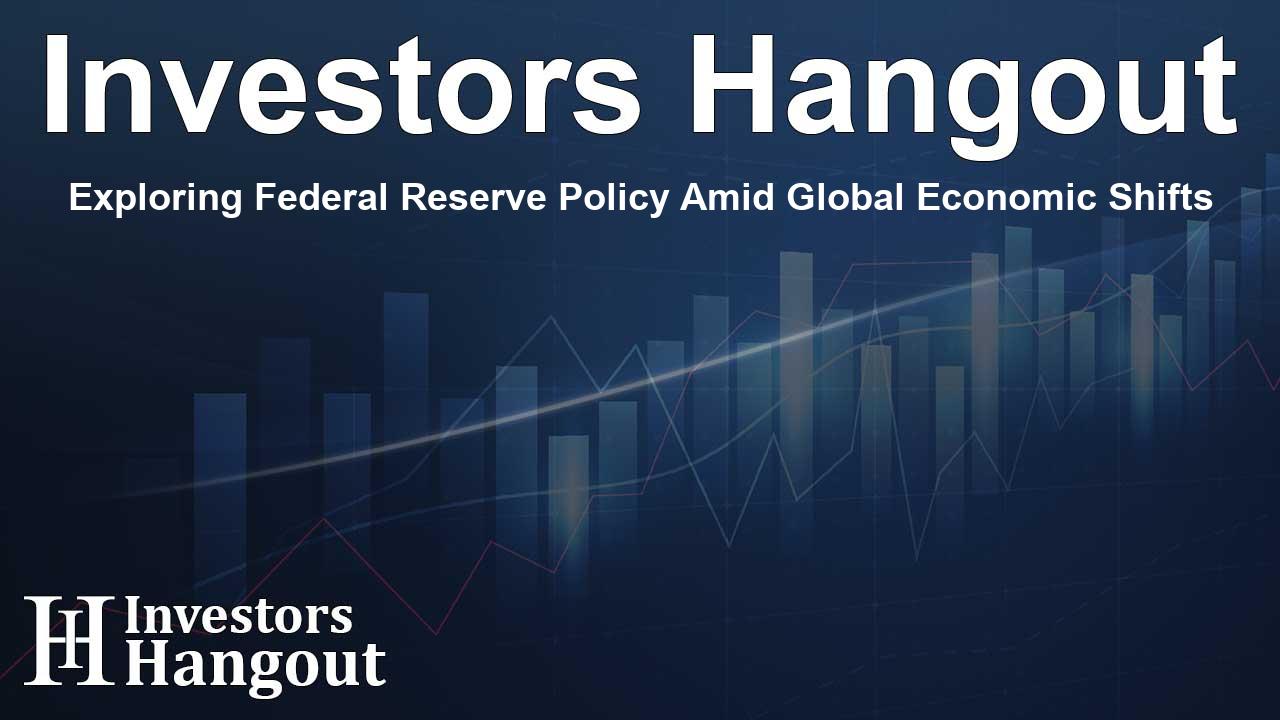Exploring Federal Reserve Policy Amid Global Economic Shifts

Understanding Current Economic Conditions Affecting the Fed
Recent discussions surrounding the Federal Reserve's monetary policy have sparked significant interest among economists and investors alike. With inflation rates remaining a topic of concern, there's a growing curiosity about how these economic factors might influence the Fed's upcoming decisions.
The Role of Inflation in Monetary Policy Decisions
As inflationary pressures persist, the Fed is faced with a complex decision-making environment. The persistent rise in prices has led many analysts to speculate about the possibility of the Fed pausing any further rate cuts in response to economic signals. Insights from key financial analysts suggest that the Fed might be cautious after observing fluctuating inflation data.
Analyzing Current Interest Rates
The federal funds rate has remained under scrutiny as experts evaluate its current implications. It’s vital to understand that inflation is not merely a domestic issue; it encompasses global trends that influence the Fed's interest rate trajectory. The FOMC (Federal Open Market Committee) is keenly aware of the economic balance that needs to be maintained amidst these inflationary pressures.
Implications of Federal Reserve Decisions
Should the FOMC decide on a rate cut, it will likely encounter dissenting opinions from some members who argue for a more cautious stance. Many believe that until inflation shows significant signs of slowing, maintaining a higher federal funds rate is crucial for stabilizing the economy.
Indicators of Economic Strength
Evaluating economic indicators is essential for understanding whether the Fed's current rate might be deemed restrictive. Historically, periods of recession have occurred when the federal funds rate exceeds nominal GDP growth. As it stands, the spread between these two metrics is close to zero, implying that the current rates might not be quite restrictive.
The Bond Market's Perspective
Similarly, looking at conditions in the bond market is equally important. The behavior of the 10-year Treasury bond yield offers insights that could signal whether the market is entering a restrictive phase. In the past, bond yields were excessively accommodating during the inflation spikes of the 1960s and 1970s, leading to increased vigilance in the subsequent decades. Presently, the relationship between bond yields and nominal GDP growth suggests that we are not in a restrictive environment either.
The Current Landscape of Bond Yields
For the most part, the bond vigilantes seem to be holding steady without undue alarm. The trend in bond yields has indicated that they are not signaling immense fortifications against inflation yet, which is a critical factor for the Fed's future strategies.
Advice for the Federal Reserve
Considering all of these factors, financial analysts underline the importance of a measured approach by the Federal Reserve. The prevailing sentiment suggests a call for the Fed to adopt a more relaxed stance as they navigate these economic waters.
Frequently Asked Questions
What drives the Fed's decision on interest rates?
The Federal Reserve considers multiple factors, including inflation, economic growth, and employment levels, when determining interest rates.
How does inflation impact the economy?
Inflation can erode purchasing power and influence the cost of living, prompting responses from central banks to stabilize the economy.
What are the implications of a rate cut?
A rate cut generally aims to stimulate borrowing and investment, encouraging economic growth during sluggish periods.
How do bond yields relate to Federal Reserve policy?
Bond yields are indicators of market expectations regarding future interest rates and economic conditions, thus influencing the Fed's decisions.
Why is the spread between the federal funds rate and GDP growth significant?
This spread helps assess whether monetary policy is too tight or loose, which can signal potential economic downturns or overheating.
About Investors Hangout
Investors Hangout is a leading online stock forum for financial discussion and learning, offering a wide range of free tools and resources. It draws in traders of all levels, who exchange market knowledge, investigate trading tactics, and keep an eye on industry developments in real time. Featuring financial articles, stock message boards, quotes, charts, company profiles, and live news updates. Through cooperative learning and a wealth of informational resources, it helps users from novices creating their first portfolios to experts honing their techniques. Join Investors Hangout today: https://investorshangout.com/
Disclaimer: The content of this article is solely for general informational purposes only; it does not represent legal, financial, or investment advice. Investors Hangout does not offer financial advice; the author is not a licensed financial advisor. Consult a qualified advisor before making any financial or investment decisions based on this article. The author's interpretation of publicly available data shapes the opinions presented here; as a result, they should not be taken as advice to purchase, sell, or hold any securities mentioned or any other investments. The author does not guarantee the accuracy, completeness, or timeliness of any material, providing it "as is." Information and market conditions may change; past performance is not indicative of future outcomes. If any of the material offered here is inaccurate, please contact us for corrections.